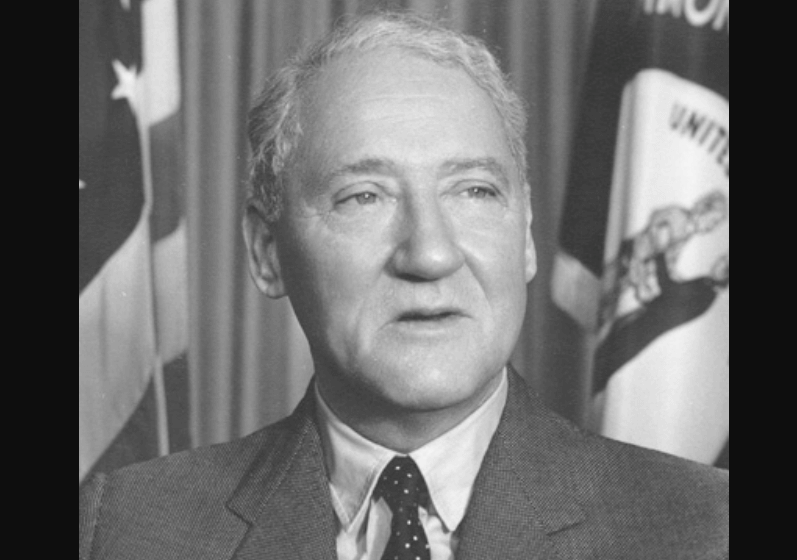Explore the life and career of John Sherman Cooper, an American senator, diplomat, and advocate for bipartisan foreign policy. Learn about his distinguished diplomatic service as U.S. Ambassador to India and East Germany, his liberal Republican stance, and his role in the Warren Commission investigating President Kennedy’s assassination.

Source: wikipedia.org
John Sherman Cooper; (1901-1991 ), American senator, diplomat, and government official. Born in Somerset, Ky., on Aug. 23, 1901, he graduated from Yale in 1923, attended Harvard law school, and was admitted to the bar in 1928. After a term in the Kentucky legislature, Cooper was a county judge for eight years before running unsuccessfully for governor. During World War II he served in the Army with distinction.
After the war, Cooper devoted himself mostly to his career in the U. S. Senate. He served from 1946 to 1949 and from 1952 to 1955. In 1956 he was elected to fill an unexpired term for a third time, and he was elected to full terms in 1960 and 1966. President Harry S Truman appointed him a delegate to the United Nations (1949-1951) and then adviser to Secretary of State Dean Acheson. During 1955-1956, Cooper was ambassador to India.
A liberal Republican, Cooper supported a bipartisan foreign policy and championed the United Nations. On domestic issues he often bolted his party to back liberal legislation. On civil rights he took what were considered advanced positions for a border-state senator. A friend of President John F. Kennedy, Cooper was a member of the Warren Commission that investigated his assassination.
John Sherman Cooper Diplomatic Career
John Sherman Cooper had a distinguished diplomatic career alongside his political endeavors. Here are the highlights of his diplomatic service:
U.S. Ambassador to India (1955-1956)
- Appointed by President Dwight D. Eisenhower.
- Cooper gained the confidence of Indian Prime Minister Jawaharlal Nehru.
- Played a significant role in improving relations between the U.S. and the recently independent state of India.
- Helped rebuff Soviet hopes of expanding communism in Asia.
U.S. Ambassador to East Germany (1974-1976)
- Appointed during the presidency of Gerald Ford.
- Served as Ambassador to the German Democratic Republic, also known as East Germany.
- During his tenure, he worked on diplomatic relations between the United States and East Germany, which was part of the Eastern Bloc during the Cold War.
These diplomatic appointments were a testament to Cooper’s abilities in international relations and his contribution to U.S. foreign policy during pivotal times in history.